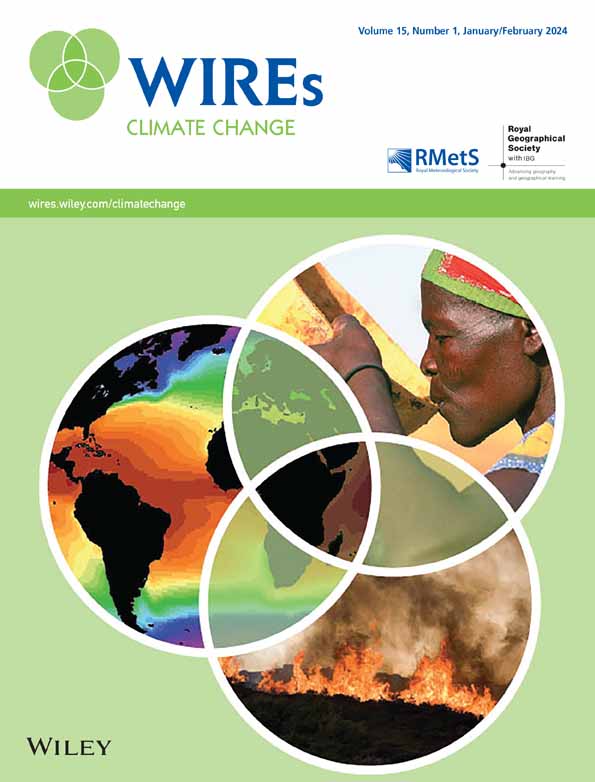Climate nationalisms: Beyond the binaries of good and bad nationalism
IF 10.3
1区 环境科学与生态学
Q1 ENVIRONMENTAL STUDIES
引用次数: 2
Abstract
Climate nationalism has attracted renewed interest among scholars and analysts of international climate politics, security studies, and international relations more broadly. However, the most prominent arguments about climate nationalism follow a storyline of “good nationalism” or “bad nationalism”—a “positive civic nationalism” versus a “destructive ethnic nationalism.” In this article, we review these debates by drawing on prominent strands of scholarship on climate nationalism, mapped onto three key aspects: climate securitization, political populism, and Civic nationalism. To further ground our review in real‐world politics outside of the United States and Western Europe, we offer a snapshot of climate nationalism narratives deployed by political elites in three large countries in the Asia‐Pacific: Australia, India, and China. Our review shows that considering the multiscalar, multisectoral, and global scope of climate action, it may be futile to look for a conclusive answer to the question of whether nationalism is good or bad for fostering effective and enduring transformations suitable for a climate‐changed world. Instead, we recommend a research agenda focused on investigating the myriad ways in which political and economic elites fuse discourses of nationalism with various aspects of climate politics and climate action. A proper understanding of elite interests, discourses, and strategies, in ways that account for varied national and regional political and economic contexts, we argue is crucial for a fuller understanding of how narratives of nationalism may affect climate action.气候民族主义:超越好与坏的民族主义二元对立
气候民族主义重新引起了国际气候政治、安全研究和国际关系的学者和分析人士的兴趣。然而,关于气候民族主义的最突出的争论遵循着“好的民族主义”或“坏的民族主义”的故事情节——“积极的公民民族主义”与“破坏性的民族主义”。在这篇文章中,我们通过借鉴气候民族主义学术研究的突出分支来回顾这些争论,并将其映射到三个关键方面:气候证券化、政治民粹主义和公民民族主义。为了进一步将我们的研究立足于美国和西欧以外的现实世界政治,我们简要介绍了亚太地区三个大国(澳大利亚、印度和中国)的政治精英所采用的气候民族主义叙事。我们的回顾表明,考虑到气候行动的多尺度、多部门和全球范围,寻找民族主义对于促进适合气候变化世界的有效和持久转型是好是坏的问题的结论性答案可能是徒劳的。相反,我们建议制定一个研究议程,重点研究政治和经济精英将民族主义话语与气候政治和气候行动的各个方面融合在一起的无数方式。我们认为,正确理解精英的利益、话语和战略,以解释不同国家和地区的政治和经济背景,对于更全面地理解民族主义叙事如何影响气候行动至关重要。
本文章由计算机程序翻译,如有差异,请以英文原文为准。
求助全文
约1分钟内获得全文
求助全文
来源期刊

Wiley Interdisciplinary Reviews: Climate Change
METEOROLOGY & ATMOSPHERIC SCIENCES-
CiteScore
20.00
自引率
2.20%
发文量
58
审稿时长
>12 weeks
期刊介绍:
WIREs Climate Change serves as a distinctive platform for delving into current and emerging knowledge across various disciplines contributing to the understanding of climate change. This includes environmental history, humanities, physical and life sciences, social sciences, engineering, and economics. Developed in association with the Royal Meteorological Society and the Royal Geographical Society (with IBG) in the UK, this publication acts as an encyclopedic reference for climate change scholarship and research, offering a forum to explore diverse perspectives on how climate change is comprehended, analyzed, and contested globally.
 求助内容:
求助内容: 应助结果提醒方式:
应助结果提醒方式:


